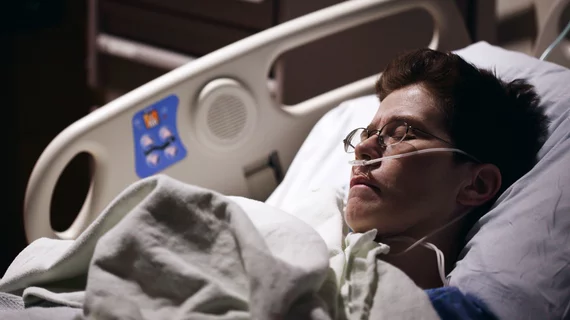10 things U.S. healthcare should do ASAP for COVID patients, families and caregivers
Warning that the next few months may be the deadliest yet in the COVID crisis, two prominent palliative care specialists are calling on the nation’s healthcare influencers to rethink restrictive visitation policies.
They also advocate for regulation and other measures to standardize presently scattershot communication practices between providers, patients and families.
Harvard physicians Richard Leiter, MD, and Samantha Gelfand, MD, practice at Brigham and Women’s Hospital and the Dana-Farber Cancer Institute. Writing from firsthand observations made since the pandemic hit Boston, they make their case in commentary published by STAT News.
“The son of one of our patients asked if we’d consider transferring his father to a hospital down the street, as he heard it had fewer visitor restrictions,” Leiter and Gelfand write. “The opportunity to hold a dying family member’s hand should not depend on which emergency department the ambulance was directed to.”
Their argument contains 10 specific recommendations:
1. The CDC should create transparent, evidence-based standards for visitor policies that are tied to rates of viral spread.
2. Hospitals in communities with lower rates of positive Covid-19 tests should be more open to visitors, and all hospitals in the same community should have the same policies.
3. For the critically ill, visitation policies should have enough flexibility to avoid coercive transitions to comfort-focused care.
4. HHS and the Joint Commission should devise regulations about connecting patients with their families when they can’t be at the bedside.
5. If hospitals can’t allow daily visitation, they should proactively offer families daily access to video and phone visits.
6. Hospitals should step in to meet the needs of patients who cannot communicate on their own or lack communication devices.
7. Hospitals need to hire or repurpose staff to ensure regular and equitable patient-family communication, as ours did at the time. Patient care associates, certified nurse assistants, or medical assistants could be trained and compensated for managing this large and important task.
8. Hospitals are already stretched beyond their capacity, so any requirements must be accompanied by material and financial support from federal and state governments.
9. To improve equity, the incoming Biden-Harris administration should invoke the Defense Production Act to procure better supplies of personal protective equipment and rapid testing for visitors.
10. The administration should also mobilize big tech companies like Apple, Amazon and Google to assist with devices and logistics and incentivize hospitals to hire new staff to meet their patients’ communication needs.
“As the nation braces for the coming months, we need a national strategy to mitigate this suffering,” Leiter and Gelfand write. “The inequitable chaos of the status quo—usually a nurse scrambling to arrange a video chat, often on her or his personal phone—is unacceptable. Nearly 10 months into the pandemic, we should not still be trying to figure this out.”

